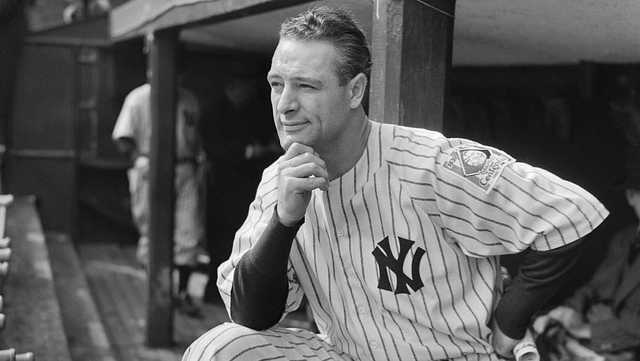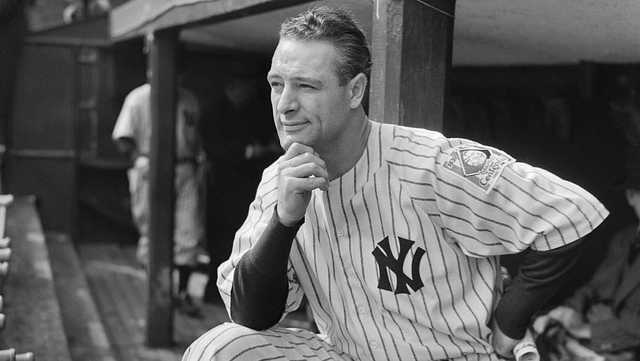
June 2, 2021 – Lou Gehrig Day
MMO Fan Shot by Sir Lawrence
As summer approaches, we again turn our full attention to what has been America’s pastime for a century and a half. These are the months when baseball has the entire sporting calendar to itself, our undivided attention. The basic precepts of that baseball fandom don’t change – we want our team to win the World Series, as it was in the beginning and every year since – only the ways in which our fandom manifests changes.
For example, we have more information at our fingertips now than fans from any other era. After a quick internet search, we can find almost anything we want about a particular player. It is a great gift to baseball diehards. The tradeoff of this modernity and all-encompassing access to our favorite players and teams comes at the expense of mystique.
Myth, legends and lore were the foundations of a bygone baseball era. Myths and legends have long since been consumed by technology.
No longer do fabulous feats of performance come tinged with the flair of poets. There is no modern comparison to The Babe pointing his finger emphatically to centerfield and then hitting a home run to that very spot. Or Joe Jackson, once known as Shoeless, in his finest footwear for the grand jury, coming down the stone steps after admitting he had foreknowledge of a plot to fix the World Series, and that young boy in the newsy cap, asking heartbreakingly of his hero, “Say it ain’t so, Joe?”
In modern parlance, all we have now are true outcomes. Mystique is dead, science and mathematics replacing poetry and whimsy. Maybe these tales of yore are apocryphal, maybe not, but as MLB celebrates Lou Gehrig Day, an ALS fundraiser, I’d like to share the Legend of the Iron Horse.
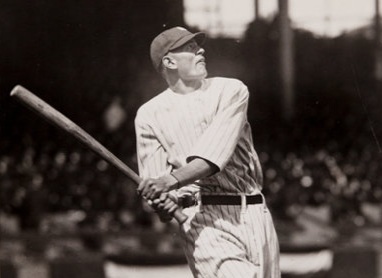
Wally Pipp
You see, the second day of June, 1925 was a lazy Tuesday and the New York Yankees were preparing to play yet another afternoon game. They were all afternoon games then. First baseman Wally Pipp was with the team trainer, popping two aspirin to help with a severe headache.
As luck would have it, Yankee skipper Miller Huggins just happened to be meandering by at that moment. Poor Wally had been struggling at the plate lately. Maybe it was the lingering headaches. Maybe it was just your run of the mill baseball player fading out into retirement. Regardless, Huggins patted his once-steady first baseman on the back and said, “Wally, today’s not your day. We’ll try the kid at first and get you back in there tomorrow.”
Pipp nodded. “Sure thing, Skip.”
Well, there would be no tomorrow for Mr. Pipp. The next 2,128 tomorrows at first base were reserved for one Henry Louis Gehrig, the Iron Horse. That’s 14 straight years, if you’re keeping score. Yes, from his first start on June 2, 1925 to his last on April 30, 1939, Gehrig started 2,129 consecutive games – Gehrig had pinch hit the game before his first start for 2,130 consecutive games overall.
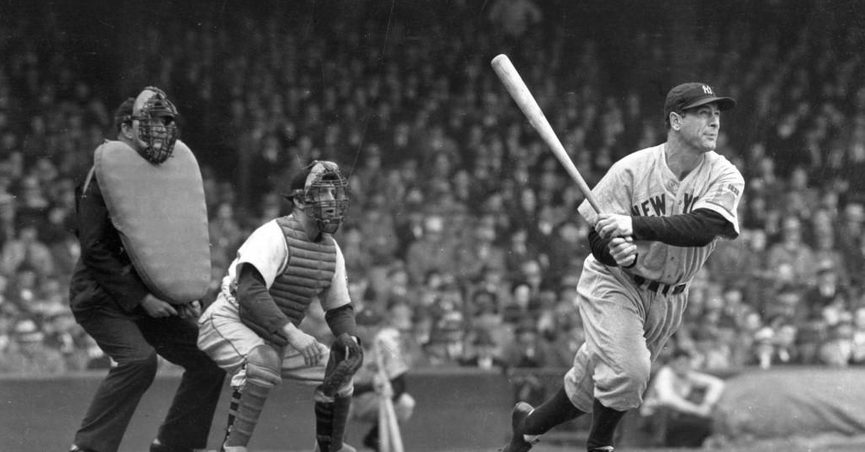
Over 15 grueling seasons of wear and tear, the Iron Horse showed up to work without missing a day and performed with an excellence few in the game have ever reached.
“There was no particular reason to keep playing without a break,” said Lou’s wife, Eleanor, “no particular compulsion – except the fascination to add one more day, one more week.”
Playing ball was Lou Gehrig’s job and fielding his position day in and day was what a ballplayer was supposed to do. There has never been a ballplayer more dedicated to the game than Lou Gehrig.
That feat of remarkable endurance, over 2,000 consecutive games played, wouldn’t come close to being approached again, until another Iron Man showed up almost 60 years later.
With no disrespect intended toward Cal Ripken, he had advantages Lou Gehrig never had –state of the art advances in science and medicine and private air for example. Gehrig played in an age when the sage advice of the training staff was, “Rub some dirt on it,” and slow trains brought the players from city to city.
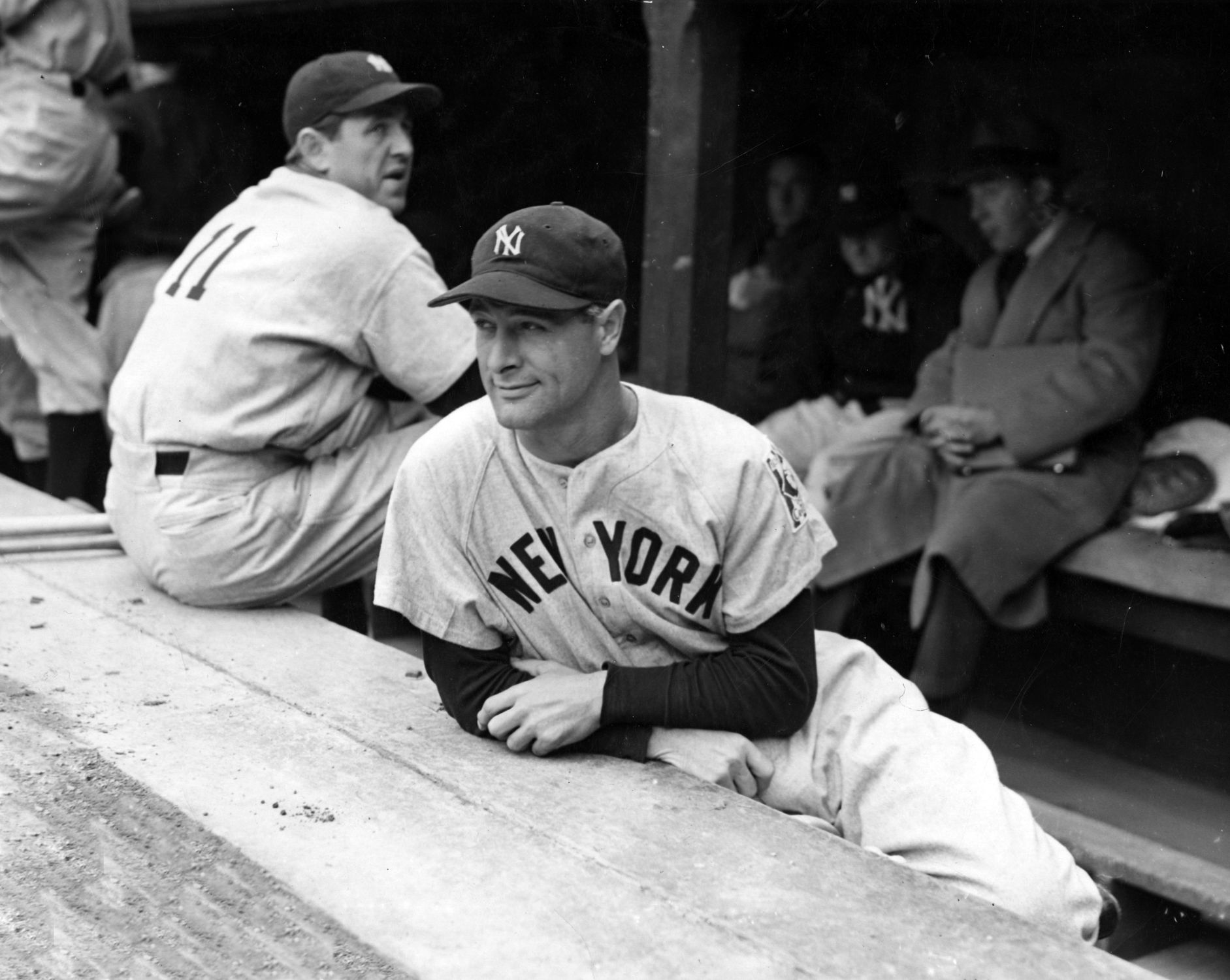
And the consistency was something to marvel at. In his first full season, Gehrig slashed .365/.531/.896. In his last full season, his slash was .410/.523/.933, a remarkable and relentless consistency that terrorized opposing pitchers for going on a decade and a half.
And Gehrig provided no quarter, every day he was there. Fire-balling righties like Bob Feller – Gehrig played. Dominating lefties like Lefty Grove – Gehrig played. He always played. There would be no rest for the weary as first Miller Huggins and then Joe McCarthy penciled big No. 4’s name into the cleanup spot day after day.
It was an immigrant’s work ethic. Lou Gehrig is the story of America. His parents had emigrated from Germany, and baseball, as it has for so many of us first-generation Americans, bridged that cultural divide between the Old Country of our parents and the place of our own birth, New World America.
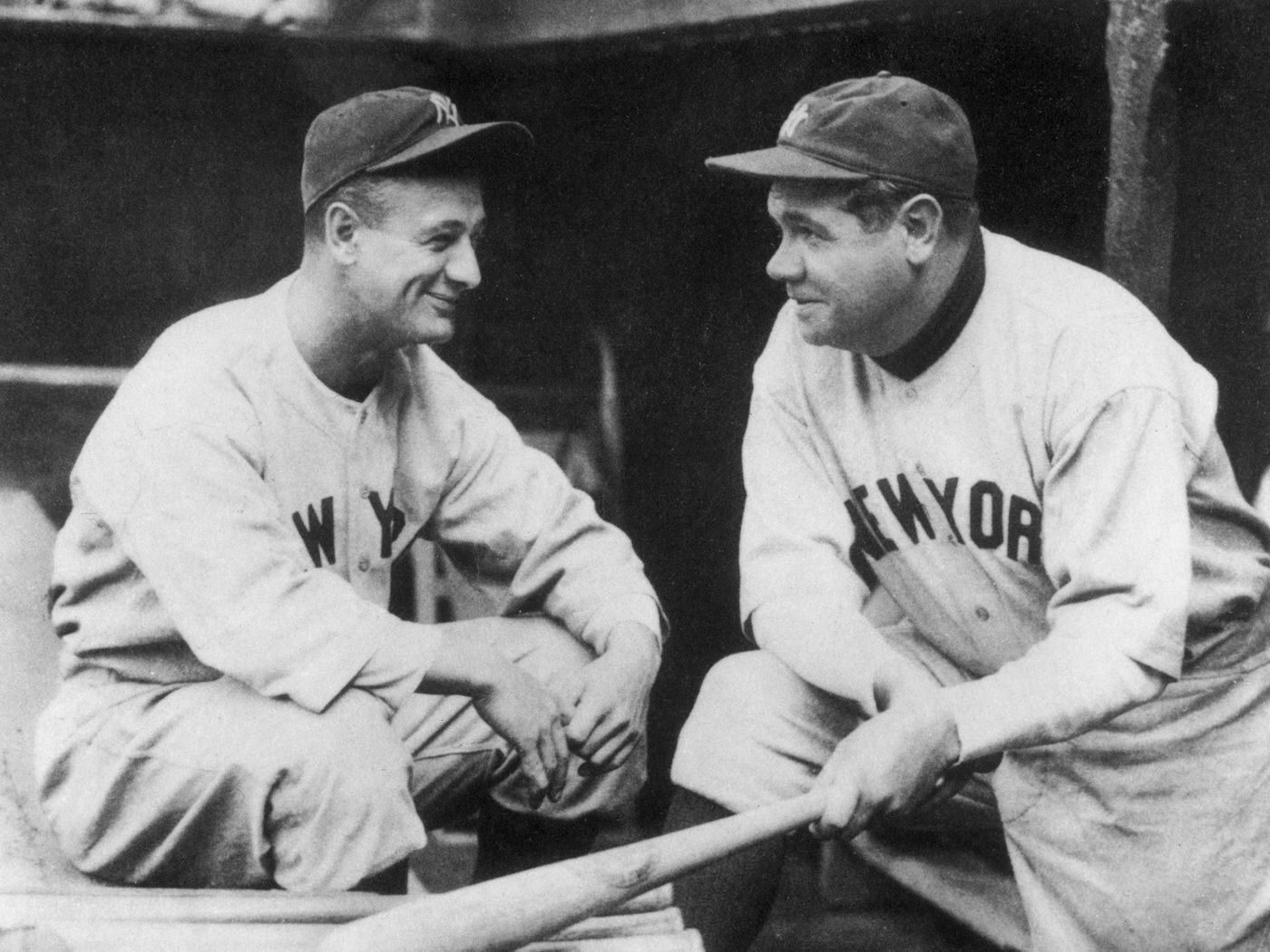
Baseball has always been a game welcoming to immigrants and Mr. Gehrig was a shining beacon to all, providing a light that so many players have used for guidance in his wake. In fact, Lou Gehrig’s name was not Lou Gehrig at all. It had been Anglicized from the German Heinrich Ludwig Gehrig.
A career cause for ceremony in and of itself, but sadly, Lou Gehrig Day is a memorial to a young man cut down in his prime.
In his 1931 season, Gehrig drove in 184 runs, an AL record that still stands to this day. He was built like a tank, a strapping man, with sinewy muscle that flexed as he drove this moonshots into the short right field porch at Yankee Stadium. He had the physique of a football player, as he had been at Columbia University. “He was a symbol of indestructibility,” said legendary sports reporter Jim Murray, “a Gibralter in cleats.”
The Legend of the Iron Horse that had begun during a rather undistinguished mid-season game in June 1925 would end with great ceremony and fanfare on July 4, 1939, before a sold-out house of Yankee faithful, 62,000 by estimates, including Lou’s parents.
The notoriously shy man had not planned to speak that day, but at the incitement of a grateful crowd, Gehrig felt he had to. What had once been a robust hulk of a man was diminished now by a disease for which there is still no cure, and with the help of old teammates, stepped to the microphones.
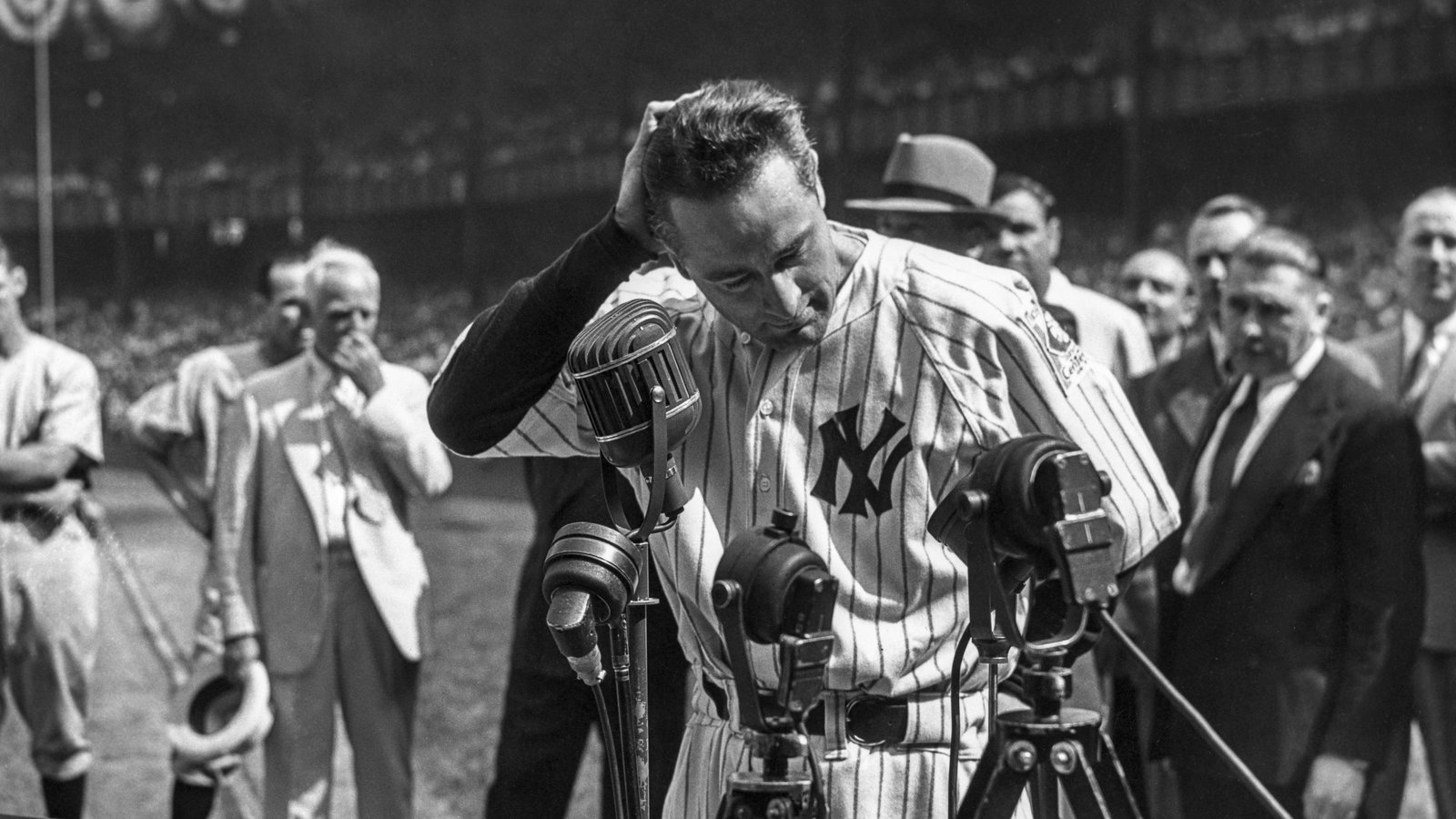
The stadium was teetering on edge, hooting and hollering like a bunch of gashouse gorillas. As their hero stood, ever so precariously, to address them one last time the raucous crowd suddenly became deathly silent.
The gravitas of the moment struck all, old and young alike. The Yankee faithful could not believe their eyes. The bear of a man, long anchored to first base, was now feeble and weak. Yet he, who had marveled on the diamond for 15 seasons, had one last marvel in him, one last indelible memory for a house full of fans. The reluctant speaker stood at the mics and delivered what has come to be known as “the Gettysburg Address of baseball.”
That line we all know, so memorable, has been immortalized and parodied both:
“Today I consider myself the luckiest man on the face of the earth.”
The crowd could not stay silent any longer and once again erupted into rapturous cheers. The Iron Horse paused, as if watching a breaking ball exit the strike zone, and bathed in the reverence, a tear coming to his eye. He had grown used to the cheers, but this was different. Where once they had cheered for Gehrig the ballplayer, now they cheered for Gehrig the man. He faced a certain death sentence. He knew it. His teammates, present and former, knew it. The crowd knew it. And yet they cheered like never before.
And then he was done. Mr. Gehrig stepped away from the microphone forever. He would be dead within two years at the age of 38. But he left us one final message, one we can all live by. The last words Lou Gehrig ever said in public: “I’ve got an awful lot to live for.”
And so do we. It’s Lou Gehrig Day. Let’s play ball!
“What visions burn, what dreams possess him,
Seeker of the night?
The faultless velvet of the diamond,
The mounting roar of 80,000 voices
And Gehrig coming to bat…”
– poet Thomas Wolfe, 1934
“G is for Gehrig.
The Pride of the Stadium;
His record pure gold,
His courage, pure radium”
— Ogden Nash
* * * * * * *
This MMO Fan Shot was written by Sir Lawrence. Got something you want to say? Send your Fan Shot to [email protected].


